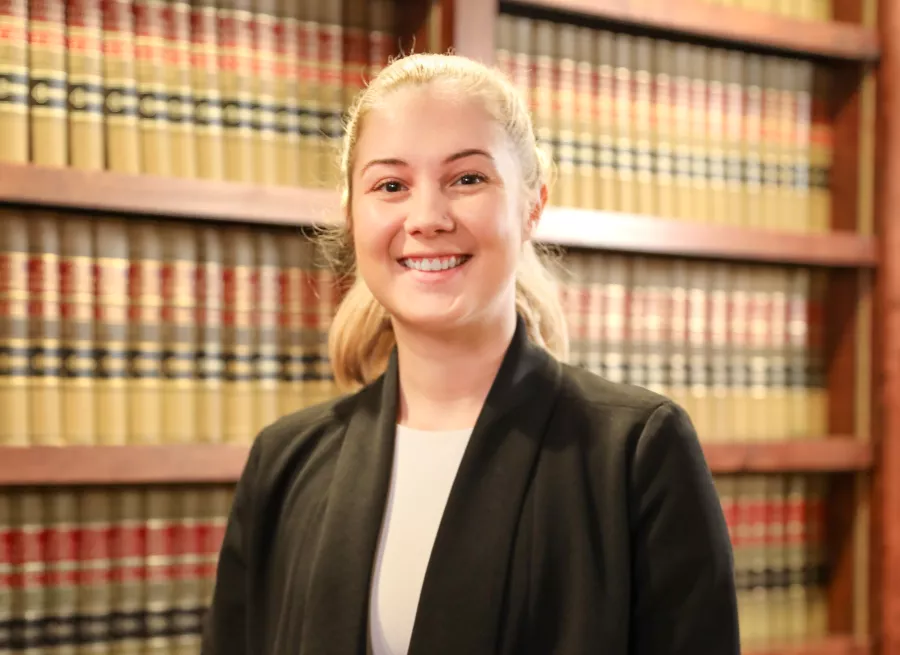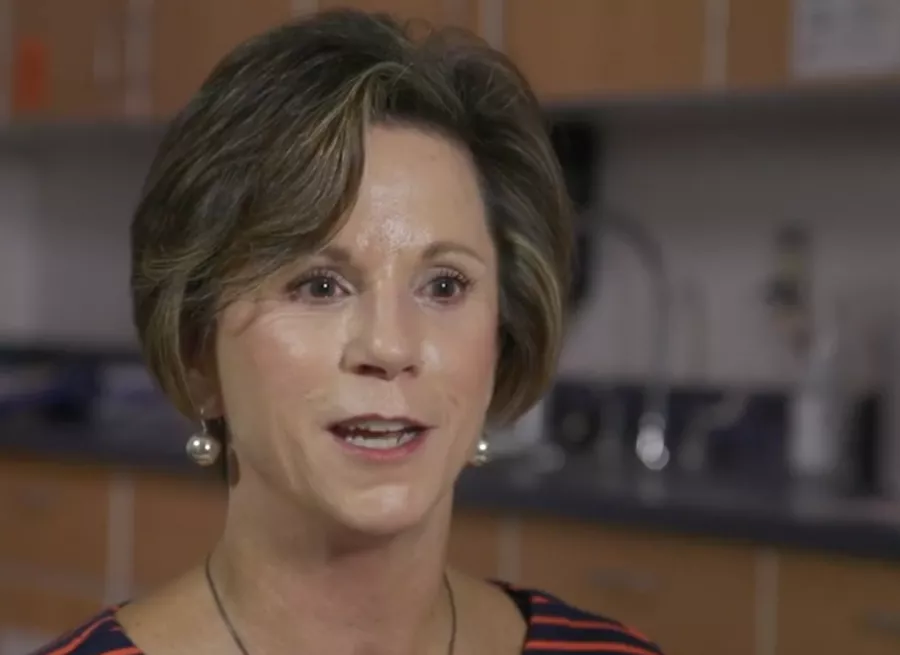Accounting
Academic Certificate
Overview
The Certificate in Accounting provides a solid introduction to the essentials of accounting. Certificate graduates will gain a basic foundation in accounting principles, technical and analytical skills, and popular software, including QuickBooks and Excel, so that they may enter the workforce ready to put their skills to work.
The Certificate in Accounting requires fewer credit hours than the Associate in Applied Science (AAS) in Accounting Degree; it is designed to provide students with an introductory level of accounting or to allow students who hold an associate or bachelor's degree to continue their education for career development, promotion, or new career opportunities. Since all of the courses listed in this certificate program are a subset of the Associate in Applied Science in Accounting degree, students may begin with an Accounting Certificate and continue taking courses to complete the Accounting Associate degree.
Catalog prerequisites are required before taking upper-level courses.
School of Business Mission Statement
Our mission is to provide high-quality and affordable business education in accounting, office support services, marketing, and management that prepares students for successful careers in the dynamic and competitive marketplace. Our programs are designed to be accessible and transferable, allowing students to transition seamlessly into the workforce or continue their education.
Upon degree completion, students will be able to:
- Use critical and creative thinking to solve problems
- Apply clear and effective communication skills
- Demonstrate professional and ethical conduct
- Use information literacy for effective vocational and/or academic research
- Apply quantitative reasoning and/or scientific inquiry to solve practical problems
Sample Program Plan and Costs
Students must earn a grade of “C” or better in all of the courses offered within the Business Department for the grade to be counted toward graduation. Specifically, these include courses with the following prefixes: ACC, BAF, BUS, CPT, MGT, and MKT.
Class Delivery Methods
View current courses offered via our online course directory.
| On-Campus | Traditional. Classes meet on campus. |
|---|---|
| Virtual | 100% online. Meets with a live instructor and classmates on specific days, at specific times. Uses web conferencing software, like Zoom. |
| Hybrid | Some classes on campus. Some classes online or virtual. |
| Online | 100% online. Due dates for projects and assignments. Self-paced work on your time. |
Full Time Schedule
| Semester | Course ID | Course Title | Classroom | Online | Hybrid | Virtual | Credits |
|---|---|---|---|---|---|---|---|
| Semester 1 (6 Credit Hours) |
ACC-124 |
Individual Tax Procedures Individual Tax Procedures ID: ACC-124 Credit Hours: 3 This course is a study of the basic income tax structure from the standpoint of the individual, including the preparation of individual income tax returns. |
• | • | 3 | ||
| ACC-101 |
Accounting Principles I Accounting Principles I ID: ACC-101 Credit Hours: 3 This course introduces basic accounting procedures for analyzing, recording and summarizing financial transactions, adjusting and closing the financial records at the end of the accounting cycle, and preparing financial statements. Students identify sound ethical and personal values. |
• | • | • | 3 | ||
| Semester 2 (6 Credit Hours) |
ACC-102 |
Accounting Principles II Accounting Principles II ID: ACC-102 Credit Hours: 3 This course emphasizes managerial accounting theory and practice in basic accounting and procedures for cost accounting, budgeting, cost-volume analysis, and financial statement analysis. |
• | • | • | 3 | |
| ACC-246 |
Integrated Accounting Software Integrated Accounting Software ID: ACC-246 Credit Hours: 3 This course includes the use of pre-designed integrated accounting software for accounting problems. |
• | 3 | ||||
| Semester 3 (6 Credit Hours) |
ACC-201 |
Intermediate Accounting I Intermediate Accounting I ID: ACC-201 Credit Hours: 3 This course explores fundamental processes of accounting theory, including the preparation of financial statements. Also covered are the time value of money, cash and receivables, and the valuation of inventories. Professional ethics and generally accepted accounting principles are introduced. |
• | 3 | |||
| ACC-240 |
Computerized Accounting Computerized Accounting ID: ACC-240 Credit Hours: 3 This course is a study of using the computer to design and implement various accounting functions, including financial transactions, records, statements, reports and documents. |
• | 3 | ||||
| Semester 4 (6 Credit Hours) |
ACC-202 |
Intermediate Accounting II Intermediate Accounting II ID: ACC-202 Credit Hours: 3 This course covers the application of accounting principles and concepts to account evaluation and income determination, including special problems peculiar to corporations and the analysis of financial reports. Accounting for the acquisition and disposal of long-term assets and procedures for handling current and long-term liabilities are covered. |
• | 3 | |||
| ACC-245 |
Accounting Applications Accounting Applications ID: ACC-245 Credit Hours: 3 This course introduces microcomputer accounting using data base software and/or electronic spreadsheets. |
• | 3 | ||||
| Total Credit Hours | 24 | ||||||
| Estimated Cost Financial Aid |
$4,896.00 Not including fees and equipment |
||||||
Part Time Schedule
| Semester | Course ID | Course Title | Classroom | Online | Hybrid | Virtual | Credits |
|---|---|---|---|---|---|---|---|
| Semester 1 (3 Credit Hours) |
ACC-124 |
Individual Tax Procedures Individual Tax Procedures ID: ACC-124 Credit Hours: 3 This course is a study of the basic income tax structure from the standpoint of the individual, including the preparation of individual income tax returns. |
• | • | 3 | ||
| Semester 2 (3 Credit Hours) |
ACC-101 |
Accounting Principles I Accounting Principles I ID: ACC-101 Credit Hours: 3 This course introduces basic accounting procedures for analyzing, recording and summarizing financial transactions, adjusting and closing the financial records at the end of the accounting cycle, and preparing financial statements. Students identify sound ethical and personal values. |
• | • | • | 3 | |
| Semester 3 (3 Credit Hours) |
ACC-102 |
Accounting Principles II Accounting Principles II ID: ACC-102 Credit Hours: 3 This course emphasizes managerial accounting theory and practice in basic accounting and procedures for cost accounting, budgeting, cost-volume analysis, and financial statement analysis. |
• | • | • | 3 | |
| Semester 4 (6 Credit Hours) |
ACC-246 |
Integrated Accounting Software Integrated Accounting Software ID: ACC-246 Credit Hours: 3 This course includes the use of pre-designed integrated accounting software for accounting problems. |
• | 3 | |||
| ACC-201 |
Intermediate Accounting I Intermediate Accounting I ID: ACC-201 Credit Hours: 3 This course explores fundamental processes of accounting theory, including the preparation of financial statements. Also covered are the time value of money, cash and receivables, and the valuation of inventories. Professional ethics and generally accepted accounting principles are introduced. |
• | 3 | ||||
| Semester 5 (3 Credit Hours) |
ACC-240 |
Computerized Accounting Computerized Accounting ID: ACC-240 Credit Hours: 3 This course is a study of using the computer to design and implement various accounting functions, including financial transactions, records, statements, reports and documents. |
• | 3 | |||
| Semester 6 (3 Credit Hours) |
ACC-202 |
Intermediate Accounting II Intermediate Accounting II ID: ACC-202 Credit Hours: 3 This course covers the application of accounting principles and concepts to account evaluation and income determination, including special problems peculiar to corporations and the analysis of financial reports. Accounting for the acquisition and disposal of long-term assets and procedures for handling current and long-term liabilities are covered. |
• | 3 | |||
| Semester 7 (3 Credit Hours) |
ACC-245 |
Accounting Applications Accounting Applications ID: ACC-245 Credit Hours: 3 This course introduces microcomputer accounting using data base software and/or electronic spreadsheets. |
• | 3 | |||
| Total Credit Hours | 24 | ||||||
| Estimated Cost Financial Aid |
$4,896.00 Not including fees and equipment |
||||||
What’s next after I complete this program?
Enter the Workforce
Students who complete the program can begin to explore employment opportunities in the accounting profession.
Further Your Education
MTC accounting credits transfer to select four-year colleges and universities, depending on articulation agreements.



